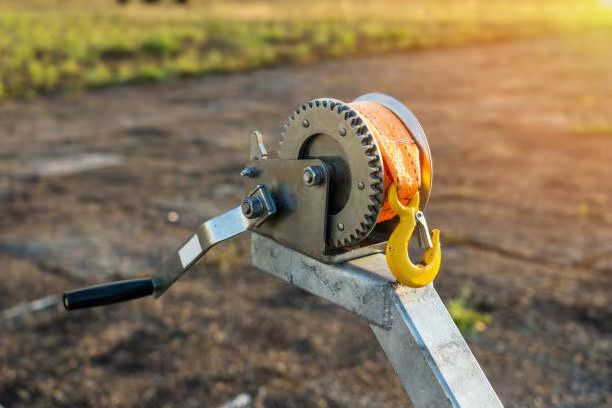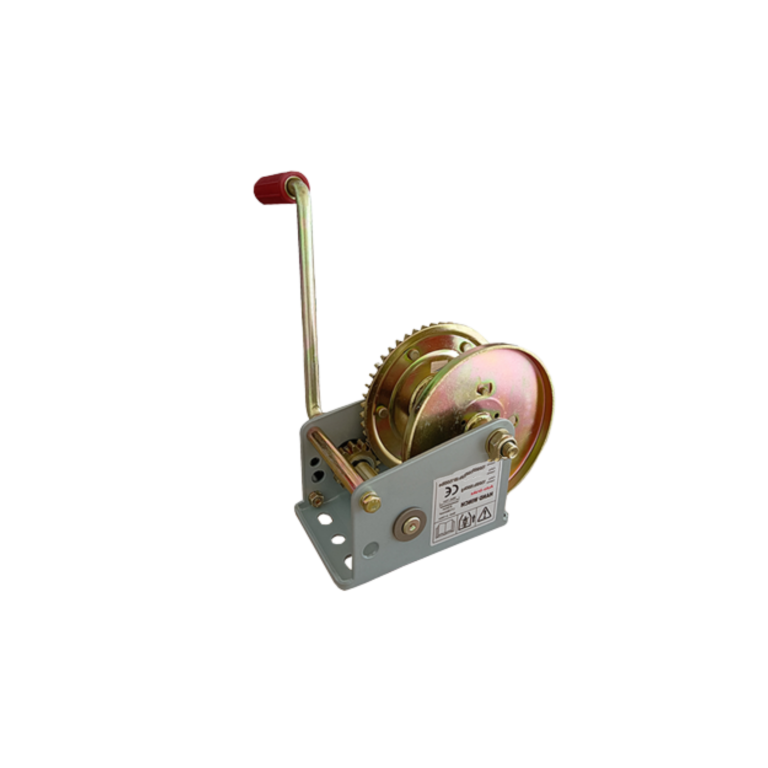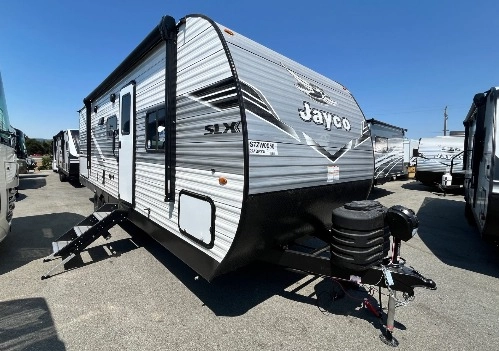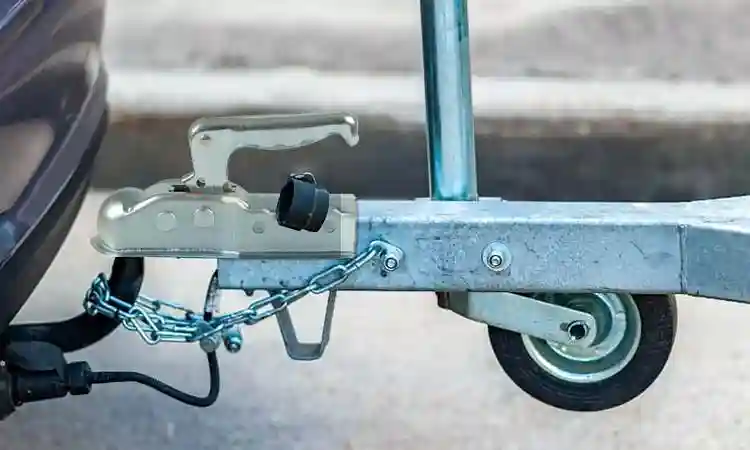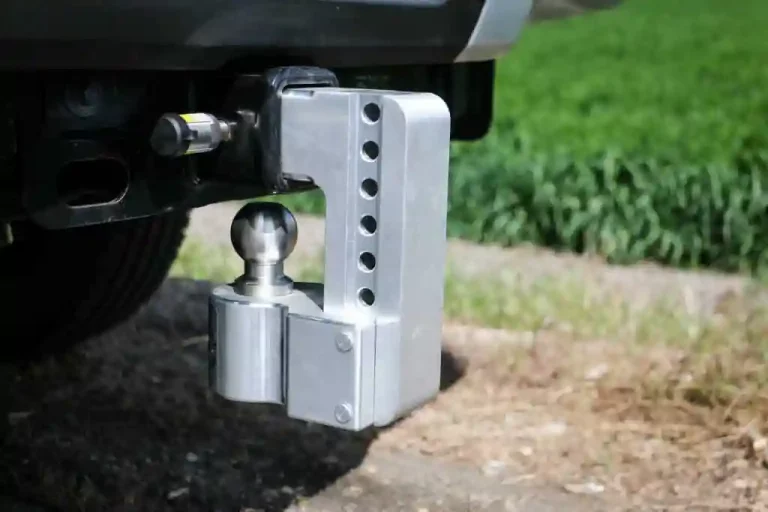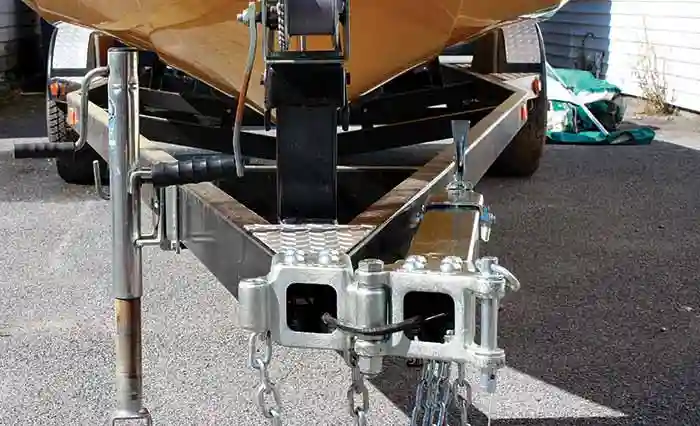Understanding Your Trailer Winch
Types of Trailer Winches
There are various types of trailer winches, but the two most common ones are electric winches and manual winches. Each type has its advantages, and understanding these can help you choose the right winch for your needs.
Electric Winches
Electric winches are powered by batteries, making them a convenient option if you’re looking to reduce manual labor. They are typically more powerful than manual winches, which allows them to handle heavier loads more efficiently. However, they do require proper electrical connections and regular battery maintenance to ensure they work effectively.
Manual Winches
Manual winches, on the other hand, depend on human effort. They are uniquely designed to be straightforward and reliable, making them a suitable choice for lighter and moderate loads. These winches do not require a power source, which can be beneficial in situations where electricity isn’t accessible. It’s crucial to ensure that you have enough physical strength and stamina to operate a manual winch safely.
Key Components of a Trailer Winch
Understanding the key components of a trailer winch aids in its proper use and maintenance. Key components include the handle (for manual winches), motor (for electric winches), cable or strap, drum, and hook. Each of these parts works in unison to lift or pull a load onto your trailer. Regularly inspect these components to ensure they are in good working condition, as a failure in any part can compromise the entire operation.
Preparing for a Safe Load
Inspecting the Winch and Equipment
Inspection is a vital step in preparing for a safe load. A thorough inspection can prevent potential accidents and equipment failure.
Checking the Cable or Strap Condition
The cable or strap of the trailer winch must be in excellent condition. Look for signs of wear and tear, such as fraying, rust, or kinks. If the cable or strap shows any damage, replace it immediately to avoid any risk of breaking under load.
Evaluating the Mounting Points
The mounting points where the trailer winch is attached to the trailer should be solid and secure. Check for any loose bolts or cracks in the mounting area. Reinforce or repair as necessary to ensure the winch is firmly in place during operation.
Ensuring Proper Weight Distribution
Proper weight distribution is crucial for maintaining balance and safety while loading. Uneven weight distribution can cause the trailer to tip or sway, increasing the risk of an accident. Before loading, ensure that the weight is evenly distributed around the trailer’s axles. Use jacks and other support mechanisms to balance the trailer if necessary. This not only protects the trailer and load but also enhances the effectiveness of the trailer winch.
Proper Techniques for Using a Trailer Winch
Securing the Trailer and Vehicle
Before you begin, make sure both the trailer and the vehicle are secure. Engage the parking brake on your vehicle and use wheel chocks to prevent any movement. This stabilizes your setup and minimizes the risk of accidental rolling while using the trailer winch.
Using Guide Lines for Alignment
Using guide lines can help maintain proper alignment of the load as it’s being winched onto the trailer. Attach these guide lines to fixed points on your load and trailer. They serve as a visual aid to ensure the load is moving straight and evenly, reducing the chances of it veering off course or becoming unstable during the process.
Operating the Winch Control
Whether you’re using an electric or manual trailer winch, understanding how to operate the winch control is vital. For electric winches, familiarize yourself with the remote control or the control switches, and ensure they are working correctly. For manual winches, practice using the handle to reel in the cable or strap steadily. Move slowly and steadily, continuously checking for any signs of strain or misalignment. If you encounter resistance, stop and reassess, rather than forcing the load, to avoid breaking or damaging the trailer winch.
Using these tips will help you use your trailer winch more effectively and safely. Always prioritize safety and maintenance to ensure that your winch remains reliable for future use.
Maintenance Tips to Keep Your Winch in Optimal Condition
Regular Cleaning and Lubrication
Maintaining your trailer winch in optimal condition requires regular cleaning and proper lubrication. Accumulated dirt and debris can hinder the winch’s operation, while timely lubrication ensures smooth movements and extends the winch’s lifespan.
Cleaning the Cable or Strap
Over time, the cable or strap of your trailer winch can collect dirt, grime, and even rust, especially if used frequently in wet conditions. Regularly inspect the cable or strap for any contaminants and clean them thoroughly with water and mild soap. Use a soft brush to scrub away stubborn dirt, then rinse and dry to prevent rust formation.
Applying Suitable Lubricants
Applying suitable lubricants to the moving parts of the trailer winch is necessary for reducing friction and wear. Focus on the gears, cable, and drum. Use a high-quality lubricant recommended for your specific type of winch. Make sure to avoid over-lubricating, as this can attract more dirt and also complicate maintenance.
Inspecting Electrical Connections
For those using electric winches, inspecting electrical connections is vital. Rusty or loose connections can cause interruptions or failures in the winch’s operation. Regularly check the battery, terminals, and cables for signs of corrosion or weakening. Use a wire brush or terminal cleaner to remove any rust, and ensure all connections are tight and secure to maintain a reliable power supply.
Troubleshooting Common Issues with Trailer Winches
Despite regular maintenance, you may encounter issues with your trailer winch. Knowing how to troubleshoot common problems can save time and prevent costly repairs.
Dealing with Cable Snags and Tangles
Cable snags and tangles can impede smooth operation of your trailer winch. If you notice the cable or strap getting twisted or entangled, stop using the winch immediately. Unwind the cable fully and re-wind it properly, ensuring alignment. Sometimes, applying a cable sleeve can help avoid frequent snags and make the cable wind up more smoothly.
Addressing Power Failures in Electric Winches
Power failures in electric trailer winches can be caused by a variety of issues, including a depleted battery or faulty connections. Start by checking the battery charge; a low or dead battery should be recharged or replaced. Inspect and clean all electrical connections to ensure proper contact. If the winch still fails to operate, there might be an internal issue requiring professional attention.
Fixing Manual Winch Operational Problems
Manual winches can suffer from operational issues like difficulty in turning the handle or ineffective tightening of the cable or strap. If the handle is tough to turn, apply a small amount of lubricant to the gears. Make sure the cable is winding evenly on the drum; uneven winding can cause resistance. If the winch still doesn’t operate smoothly, check for any worn-out components that might need replacement.
Enhancing Safety with Additional Accessories
Enhancing the safety of your trailer winch operations can mitigate risks and offer greater peace of mind. Using additional accessories can provide an extra layer of security and make winching more efficient.
Incorporating Safety Chains and Hooks
Safety chains and hooks are indispensable accessories that enhance the stability and security of the load during winching.
Benefits of Using Safety Chains
Safety chains act as a backup in case the primary cable or strap fails. They provide a secondary connection between the load and trailer, reducing the risk of the load slipping off. This extra layer ensures that even if the primary connection breaks, the load remains secured and doesn’t cause any accidents.
Choosing the Right Hooks
Choosing the right hooks is essential for ensuring the reliability of your safety chains. Always opt for hooks that are rated to handle more than the maximum load of your winch. Consider using locking hooks, which can prevent the chain from accidentally disengaging, providing added security during loading and transit.
Utilizing Wireless Remote Controls
Wireless remote controls offer convenience and can significantly enhance the safety of using an electric trailer winch. With a wireless remote, you can operate the winch from a safe distance, reducing the risk of injury from moving parts or unexpected load shifts. Familiarize yourself with the remote and make sure it is charged and functional before beginning the winching process. Utilizing this accessory allows for better monitoring and controlling of the winching activity, providing a more efficient and safer winching experience.
By adhering to these tips and consistently maintaining your trailer winch, you can ensure smooth and safe loading every time. Prioritizing proper maintenance, troubleshooting issues promptly, and utilizing safety accessories can make a significant difference in the longevity and reliability of your winch, providing peace of mind for all your loading needs.
Go Trailer Parts, a professional trailer parts manufacturer based in Qingdao, China, offers a range of high-quality trailer winches designed to meet various needs in the transportation and travel industries. These winches are essential tools for enhancing the functionality and convenience of trailers, whether for towing campers and RVs in the tourism industry, moving boats to docks or shores in water transport, or rescuing vehicles stuck in muddy or rough terrains during off-road travel. The trailer winches from Go Trailer Parts are built with durability and reliability in mind, ensuring that users can confidently handle challenging towing and recovery tasks.
In addition to their practical applications, Go Trailer Parts’ trailer winches are part of a broader product lineup that includes jockey wheels, couplers, axles, springs, and more. The company prides itself on its commitment to safety, quality, and honest business values, supported by a team of professional engineers, senior welders, and experienced workers. With advanced production equipment such as CNC machines, drilling machines, and laser cutting machines, Go Trailer Parts ensures that each winch is manufactured to the highest standards. Their 1500lbs Wire Rope Winch is designed for robust performance, offering reliable and efficient towing capabilities for various applications. Meanwhile, the 2000lbs Electric Winch provides enhanced power and convenience, making it an ideal choice for heavy-duty tasks and ensuring smooth, effortless operation. By choosing Go Trailer Parts, customers benefit from the expertise of a leading manufacturer, avoiding the hassles associated with dealing with intermediaries and ultimately saving time and money.


